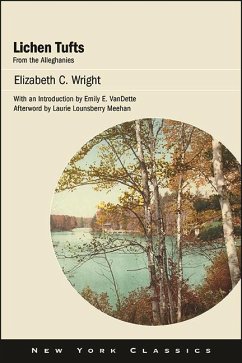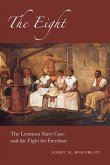In her 1860 book Lichen Tufts, from the Alleghanies, Elizabeth C. Wright weaves together environmental philosophy, lyrical nature writing, and social consciousness. A graduate of Alfred University, Wright was an activist for women's rights, temperance, and the abolition of slavery. She was a teacher, a botanist, and, later in life, a Kansas homesteader. In Lichen Tufts, Wright urged her readers to cultivate an intimate knowledge of the natural world, reflecting her Transcendentalist belief that an immersive relationship with nature benefits the individual as well as society as a whole. Composed of four essays and forty poems, Lichen Tufts reveals wisdom and beauty in an early example of eco-feminism that highlights the natural world as antidote to society's restrictive gender codes, one that is still relevant today.
SUNY Press brings Lichen Tufts, from the Alleghanies to life for modern audiences, with a recovery edition featuring the 1860 book in its entirety. An Introduction by Emily E. VanDette places the book and its author in the context of nineteenth-century social reform campaigns throughout the "Burned Over District" of western New York. An Afterword written by Laurie Lounsberry Meehan highlights the history of Alfred University and the cohort that influenced Wright's environmental and social reform activism.
SUNY Press brings Lichen Tufts, from the Alleghanies to life for modern audiences, with a recovery edition featuring the 1860 book in its entirety. An Introduction by Emily E. VanDette places the book and its author in the context of nineteenth-century social reform campaigns throughout the "Burned Over District" of western New York. An Afterword written by Laurie Lounsberry Meehan highlights the history of Alfred University and the cohort that influenced Wright's environmental and social reform activism.
Dieser Download kann aus rechtlichen Gründen nur mit Rechnungsadresse in A, D ausgeliefert werden.









